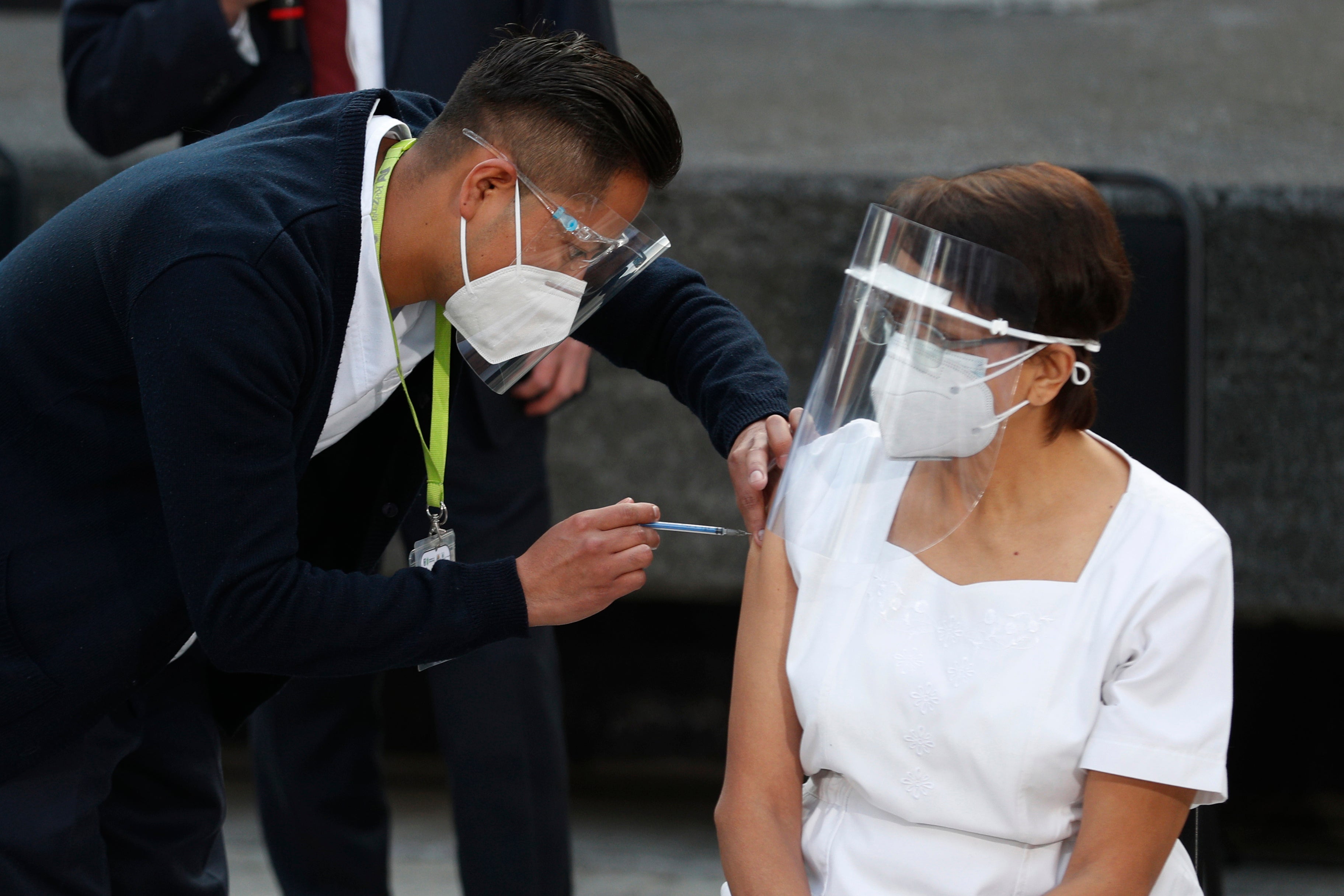Mexico starts giving first shots of Pfizer-BioNtech vaccine
An intensive care nurse in Mexico City has become the first person in Latin America _ to receive an approved coronavirus vaccine

Your support helps us to tell the story
From reproductive rights to climate change to Big Tech, The Independent is on the ground when the story is developing. Whether it's investigating the financials of Elon Musk's pro-Trump PAC or producing our latest documentary, 'The A Word', which shines a light on the American women fighting for reproductive rights, we know how important it is to parse out the facts from the messaging.
At such a critical moment in US history, we need reporters on the ground. Your donation allows us to keep sending journalists to speak to both sides of the story.
The Independent is trusted by Americans across the entire political spectrum. And unlike many other quality news outlets, we choose not to lock Americans out of our reporting and analysis with paywalls. We believe quality journalism should be available to everyone, paid for by those who can afford it.
Your support makes all the difference.An intensive care nurse in Mexico City Thursday became the first person in Latin America to receive an approved coronavirus vaccine
Mexico began administering the first 3,000 doses of the Pfizer-BioNTech vaccine in a broadcast ceremony in which Maria Irene Ramirez, 59, got the first shot, under the watchful eyes of military personnel who escorted the vaccine shipment.
“This is the best present I could have received in 2020,” said Ramirez. ”The truth is we are afraid, but we have to keep going because someone has to be in the front line of this battle."
Assistant Health Secretary Hugo López-Gatell waxed poetic, saying, “Today the stage of the epidemic and its treatment changes, to a ray of hope.”
Zoé Robledo, director of Mexico’s social security system, called it “an forgettable Christmas. We are sure this is going to be the beginning of the end of the pandemic.”
Other medical personnel also began getting the shots in the cities of Toluca and Queretaro.
Foreign Relations Secretary Marcelo Ebrard said Mexico was the first country in Latin America to get the vaccine, though others were close behind.
Chile said it was receiving 10,000 doses on Thursday and Argentina, which has run into problems obtaining the Pfizer vaccine, received a flight carrying 300,000 doses of the Russian Sputnik V vaccine, though it cannot yet be given to people older than 60 due to a lack of testing data.
While Mexico got only 3,000 doses arrived in the first shipment Wednesday, Ebrard said about 53,000 more doses would arrive by Tuesday, about 1.4 million doses in January and a total of about 11.75 million by mid-year.
Ebrard said two vaccines are currently undergoing Phase 3 studies in Mexico and another three are awaiting approval to start.
Other countries around the region are engaged in testing several vaccines, in studies that involve tens of thousands of volunteers.